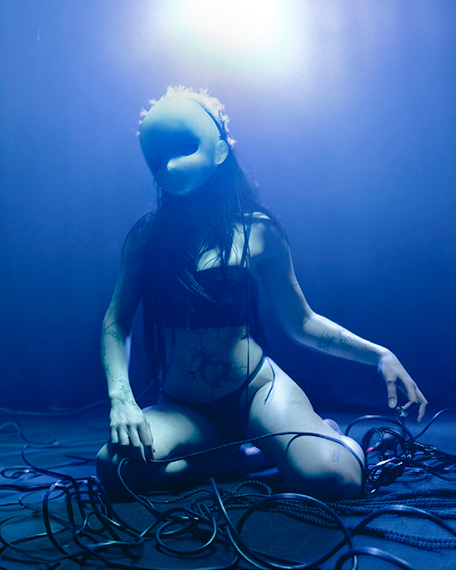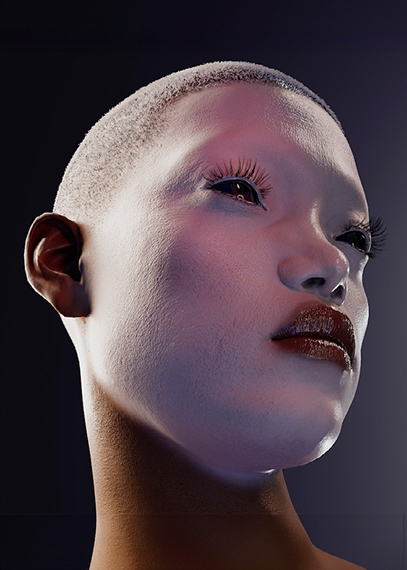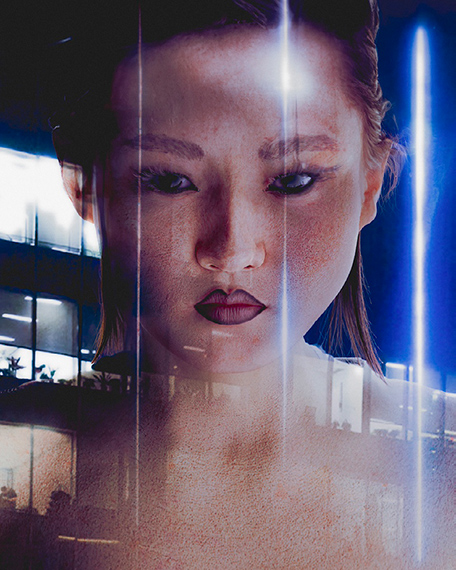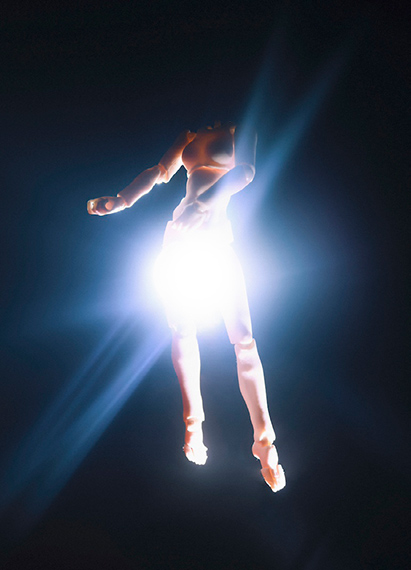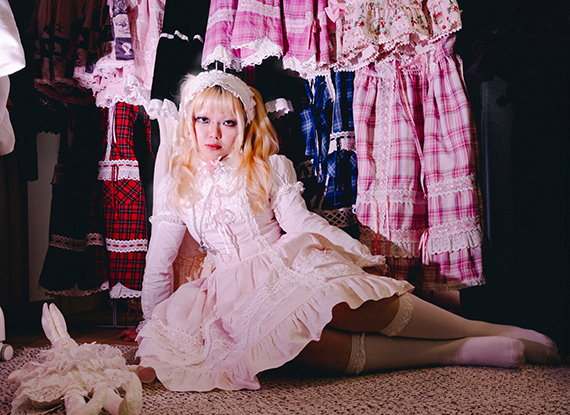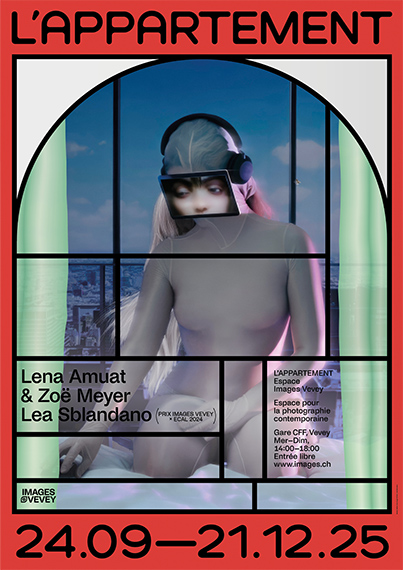
Nova & Neijuan
Lena Amuat & Zoë Meyer » Lea Sblandano »
présentation: 24 Sep 2025 – 15 Feb 2026
Wed 24 Sep 18:00
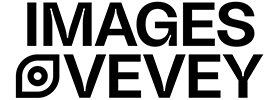
L'Appartement – Espace Images Vevey
Place de la Gare 3
1800 Vevey
+41(0)21-922 48 54
presse@images.ch
www.images.ch/en/espace
Wed-Sun 14-18
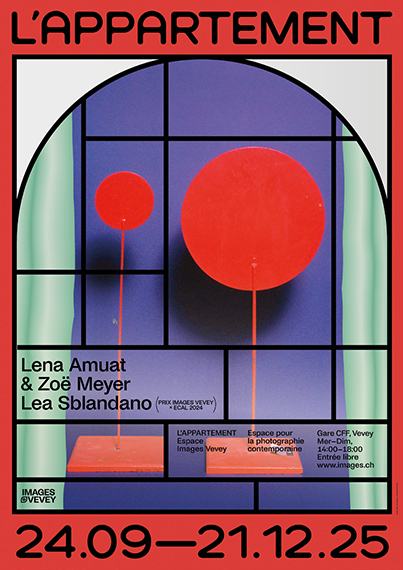
For its 12th series of exhibitions, L’Appartement–Espace Images Vevey splits in two. One side hosts Lea Sblandano, winner of the 2024 IMAGES VEVEY × ECAL Award, who presents Neijuan, an installation exploring identities in flux, where reality slides into the virtual. The other side features Nova by Lena Amuat & Zoë Meyer, a duo rephotographing scientific objects turned into poetic artefacts. On one side, digital experimentation, avatars, and connected emotions. On the other, the rigour of the laboratory, academic thought, and material memory. Two complementary approaches, confronting past and future, the tangible and the timeless, poetry and fantasy, each in their own way questioning how we see, know, and project ourselves into the world.
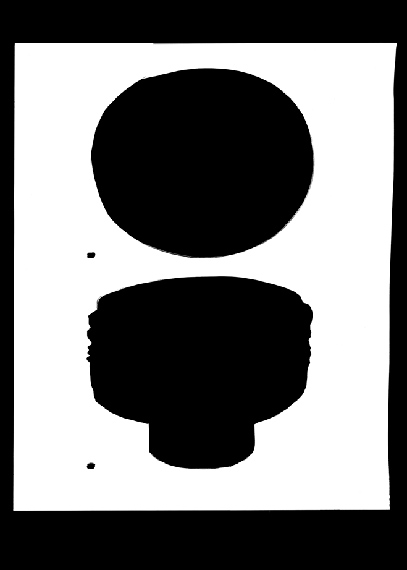
LES CHAMBRES
With their installation Nova, Lena Amuat & Zoë Meyer take over the three rooms of L’Appartement with images from their evolving photographic series. Since 2009, they have documented scientific, historical, or educational artefacts, removed from contextand reimagined. The first room shows customs-confiscated objects, displayed as curiosities stripped of their original meaning. The second invokes the artists’ studio, bringing together academic models, books, and prism photographs. The third presents vanished museum pieces, cut out and turned into shadows of the past. The hallway features striking images manipulated physically and digitally. Like the sudden flare of an invisible star, Nova forms a fictional, domestic museum where the image acts as a fragment of memory.
LE COULOIR
Lea Sblandano Neijuan, a Chinese slang term meaning “involution”, describes a retreat into oneself, a symptom of a society growing ever faster and more competitive, where youth oscillates between adulthood and stagnation. Through a documentary and collaborative approach, Lea Sblandano follows people she met online, in forums, video games, or chat rooms. These virtual spaces become arenas of transformation where alternative identities emerge beyond physical norms. In Le Couloir, she introduces this shifting world through photographs that blend portraits and urban landscapes, alternating fragments of reality and staged scenes. Both intimate and confined, the space acts as a threshold between two realms, opening windows onto the outside while initiating immersion into the fascinating universe of Neijuan.
LE SALON
Le Salon presents the book Neijuan, created by Lea Sblandano as part of her graduation at ECAL. This dummy, awarded the 2024 IMAGES VEVEY × ECAL Prize, offers a sensitive entry into her universe. It brings together key images of her research: portraits, avatars, urban landscapes, and interiors. Carefully staged, these photographs blur the boundary between real and virtual. Some figures appear human, others from video games or digital worlds, set against Asian megacities where light and architecture intensify strangeness. As a young woman, Lea also confronts troubling realities of sexualization and fetishisation in these spaces of fantasy. A silent, life-sized avatar appears in the room, an ambiguous figure between mental image and digital extension. Le Salon evokes the bedroom as both an intimate refuge and a stage for self-projection.
LE CINÉMA
In Le Cinéma, Lea Sblandano unfolds the third part of her immersive installation, conceived as a mental space charged with images. Nine screens on a metal-structure display continuous excerpts from Neijuan: videos, webcam views, avatars, and moments of intimacy intertwine into a dense, shifting visual landscape. Among them appears Kei, a real person and virtual flatmate in Japan, almost constantly connected to a chatroom since the pandemic. He is shown as Lea first encountered him: through a separate screen, suspended between wakefulness and permanent connection. The interface becomes a liberating link, while deepening the distance from the tangible world. Le Cinéma brings together the key themes of the artist’s practice: connected solitude, fragmented presence, and multiple identities. This live connection reminds us that Neijuan remains in perpetual motion, anchored in an always-online world.
